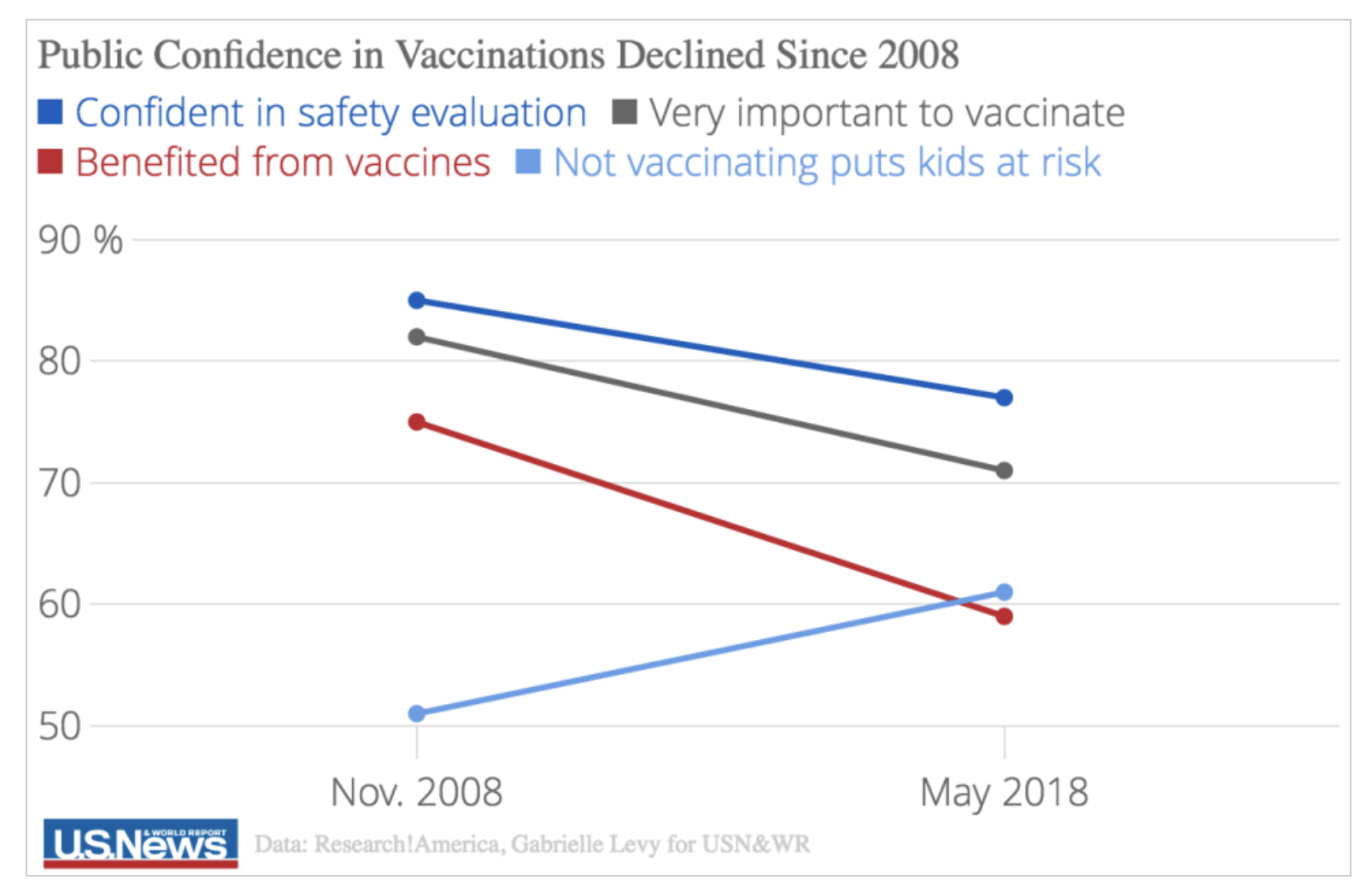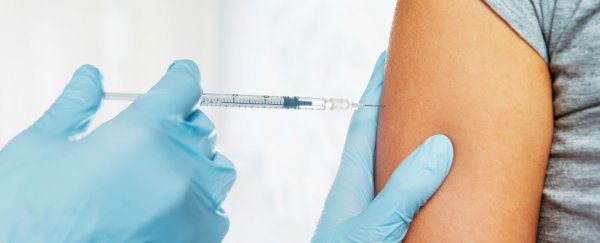In the last two decades, vaccinations have prevented more than 21 million hospitalizations and 732,000 deaths among American children.
Those results are cause for celebration. But in the last ten years, there has been an alarming shift in American attitudes toward vaccinations - and not in a good way.
A new survey from ResearchAmerica! and the American Society for Microbiology has found public trust in vaccinations is on the decline. Public health experts are understandably worried.
On the surface, the results of the survey look promising. Still, when you compare the study to a similar 2008 survey, the findings raise some serious concerns.
While the 2018 survey found a majority of Americans (77 percent) are confident in the system that evaluates the safety of vaccines, this number has dropped by 8 percentage points since 2008.
Likewise, the percentage of American adults that say it is "very important" to have their children vaccinated has dropped from 80 percent in 2008 to just 70 percent in 2018.
Furthermore, when it comes to the benefits of vaccines, American understanding is also slipping. Today, those Americans that strongly believe they have personally benefited from vaccines has fallen by a whopping 16 percent.
Perhaps this is why 53 percent of those surveyed did not get the flu vaccine at all. Among those who avoided the annual flu shot, 48 percent said it was because they do not trust the vaccine and 26 percent said it was because they thought the vaccine was ineffective.
The good news? The percentage of people who believe that not vaccinating puts their children and communities at risk has risen by 10 percentage points since 2008.

Public health experts can't fully explain why this trend is happening, but they have a few theories.
Mary Woolley, the President of ResearchAmerica!, said she believes the findings indicate a possible failure of communication between public health officials and patients - especially since the vast majority of public health experts agree that vaccines are very safe and very necessary.
"This finding in combination with a few others are a flag, a worrisome flag, that confidence is slipping a bit, and people are hedging, they're raising concerns," said Woolley.
The repercussions for public mistrust in vaccines are potentially deadly. While most Americans are continuing to vaccinate their children, public health officials believe the heightened mistrust in vaccinations could be causing a resurgence in preventable diseases in the US.
"Nationally, less than 1 percent of toddlers have not received any vaccines. It really is one of the public health success stories of the last century," Nancy Messonnier, a director at the Centers for Disease Control and Prevention (CDC), said at the Newseum in Washington DC.
"It is also still true that parents have a lot of questions about vaccines. There definitely are pockets of children that are under-vaccinated, putting them at risk for these vaccine-preventable diseases."
These pockets of under-vaccinated children are putting herd immunity at risk. The CDC reports that cases of pertussis, aka whooping cough, have risen from between 1,000 and 10,000 cases per year at the turn of the century to as high as 48,277 cases in 2012.
In 2014, ten years after the US declared measles eradicated, the CDC recorded 667 cases of the disease in 27 states.
There are a whole bunch of factors that could have led to the uptick in measles and pertussis. One leading factor is a rise in the anti-vaccination movement, which has been fuelled by powerful public figures.
"We live in a very different world than we lived in 20 years ago, but because of social media and general globalization the public is watching science in real time," said Woolley.
"That didn't used to be possible."
Nowadays, however, the internet and America's "post-truth" era is a hotbed for vaccine misinformation.
Healthy young child goes to doctor, gets pumped with massive shot of many vaccines, doesn't feel good and changes - AUTISM. Many such cases!
— Donald J. Trump (@realDonaldTrump) March 28, 2014
"Part of it's always been true – there were always the sources of misinformation, the patent medicine quacks, people who weren't actually licensed to practice medicine or talk about public health have always been around – we're just not as aware of bad information as a society as we used to be," Woolley added.
"When you see these little pockets, a community of concern, where suddenly people shift to being anti-vaccine, that's happening for a whole lot of reasons that we don't fully understand yet."
The recent survey is a crucial step towards understanding public views and knowledge of vaccines - a necessity if the US wants to stay ahead of a future epidemic.
The study was published by ResearchAmerica!.
Science AF is ScienceAlert's new editorial section where we explore society's most complex problems using science, sanity and humor.
